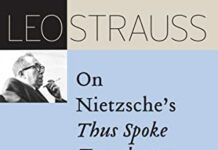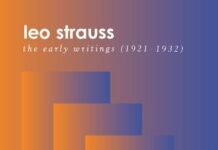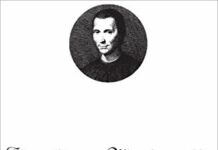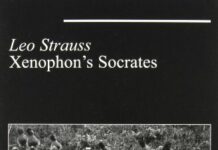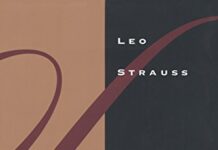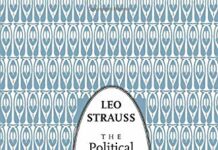
Ebook Info
- Published: 1978
- Number of pages: 254 pages
- Format: PDF
- File Size: 8.49 MB
- Authors: Leo Strauss
Description
The City and Man consists of provocative essays by the late Leo Strauss on Aristotle’s Politics, Plato’s Republic, and Thucydides’ Peloponnesian Wars. Together, the essays constitute a brilliant attempt to use classical political philosophy as a means of liberating modern political philosophy from the stranglehold of ideology. The essays are based on a long and intimate familiarity with the works, but the essay on Aristotle is especially important as one of Strauss’s few writings on the philosopher who largely shaped Strauss’s conception of antiquity. The essay on Plato is a full-scale discussion of Platonic political philosophy, wide in scope yet compact in execution. When discussing Thucydides, Strauss succeeds not only in presenting the historian as a moral thinker of high rank, but in drawing his thought into the orbit of philosophy, and thus indicating a relation of history and philosophy that does not presuppose the absorption of philosophy by history.
User’s Reviews
Editorial Reviews: About the Author Leo Strauss (1899-1973) was born and educated in Germany, receiving his doctorate from Hamburg University in 1921. He came to the United States in 1938 and taught political science and philosophy at the New School for Social Research for a decade. He joined the faculty of the University of Chicago as professor of political philosophy in 1949 and was eventually named Robert Maynard Hutchins Distinguished Service Professor. Among his many books are The Political Philosophy of Hobbes; Natural Right and History; and Thoughts on Machiavelli, all of which are available from the University of Chicago Press.
Reviews from Amazon users which were colected at the time this book was published on the website:
⭐Wow. All I can say is “wow, what a read.” For an author that seemingly dislikes the use of paragraphs, Strauss’ books are in the small minority of dense reads that I find worth the time to struggle through. He is/was an extremely intelligent man who, fun for us, or maybe just fun for me, writes in code; Strauss’ works are, as he may say, a “silent instruction.” The City and Man is certainly no exception to this rule.Don’t like philosophical spoilers? Then stop reading this review because the following are, in my view, a few code breakers for interpreting this Straussian text. I’ll keep it somewhat brief.NOMOS: Nomos is conventional, relative truth; a fabricated, normative reality. Even when not explicitly using this word (i.e. the picture in a frame) Strauss is always talking about nomos within his tacit instruction (i.e. the frame around the picture). Through mental constructs, our perception is overlaid with the markings of cultural values, beliefs, ideals, nationalities, habits, lines of thinking, and ways of proceeding. Perception is distorted in accordance with conditioning. First there is a cognition, THEN a cognitive distortion. The `city’ overwhelms `nature’. Personally, my ears perk up whenever someone uses the phrase “the real world.”NATURE: Awareness. Simple as that. Awareness precedes thought and hence can’t be captured by the modality of thought and other mental phenomena. Before the advent of the city, our natural state (awareness) lies free of values and judgments -On a side note the contemplative practice of meditation may assist us in experientially seeing this. Moreover nature is the `whole’, the whole phenomenal world that is. Reminiscent of eastern and Gnostic philosophies, we are the world and the world is us. We lie in ourselves and fail to realize it because we alienate ourselves from ourselves (consciousness becomes fragmented within itself through abstract categories and interpretive schemas).POLITICS: The interaction between people. But as far as rhetoric is concerned it is the manipulation of nomos for specific consequences. By fashioning mental artifacts that shape and organize experience into specified constellations, philosophers persuade the masses through their mouthpieces that are the politicians. However, those that have broken free from this mental-social immersion (Plato’s Cave) are no longer influenced by these political games and are thus free to participate in the further propagation of myths, stand aloof, or divulge this information in the attempt to liberate others. To be just or unjust is the question…or maybe this is a false, dualistic dilemma. After all the entire normative landscape, by being grounded in fiction, is specious to begin with.RANDOM BITS AND PIECES: Every now and then Strauss throws in a random chunky paragraph or `misplaced’ sentence that provides contextual clues. Duly note these clues because their counterparts will most likely appear, indirectly of course, ten or twenty pages down the road. Given these hints we must rotate the text and unlock their true meaning much like a Rubik’s Cube. Although I won’t quote specific passages I do, however, remember that certain intimations are made: That enlightenment itself is not a myth, that those who Know Themselves are truly wise, and towards the end Strauss even ends with the question Quid Sit Deus (What is God?). In other words, what IS the phenomenal world? From WHENCE do phenomena emerge and fall away to? What is our true nature or, more specifically, who am I, REALLY, once all the constructions and interpretations that I surround myself with have been stripped away?The eye will never see itself.
⭐The City and Man is a fine introduction both to the ancients and to Leo Strauss, although most people begin withNatural Right and History, which addresses more modern and contemporary thought. As always, “modern” beginswith people like Hobbes and Machiavelli, many centuries ago. The book consists of three essays-on Aristotle’sPolitics, on Plato’s Republic, and on Thucydides’ History of the Peloponnesians and the Athenians.The section on Aristotle has the surprising argument that Aristotle, not Socrates or Plato, was the first politicalphilosopher. This is surprising because the Republic of course is such a towering book (or set of books). I foundit fascinating on page 47 where Aristotle discusses the change of regime, where the city changes and yet remainsthe same.For those who have studied Aristotle before, this makes sense with accidental change, potency and act,etc. But it also is interesting in regard to recent American politics, where moving from one presidency to the otheris such a dramatic change. For contemporary readers, when the Greeks talk about the city, it’s not the city they’retalking about, it’s the country. Strauss points out that the phrase “my country right or wrong” applies to the city interms of patriotism or spiritedness.Plato’s Republic is discussed in more depth-pages 50 to 60 or so discuss Plato’s dialogues in general in a veryilluminating way. “If one quotes a passage from the dialogues in order to prove that Plato held such and such a view,he acts about as reasonably as if he were to assert that according to Shakespeare life is a tale told by an idiot, full ofsound and fury, signifying nothing. But this is a silly remark: everyone knows that Plato speaks through the mouth notindeed of his Protagoras, his Callicles, his Menon, his Hippias and his Thrasymachus, but of his Socrates, his Eleaticstranger, his Timaeus and his Athenian stranger” (p. 50). What many will remember about the Republic is that it’s aboutjustice-but here again Strauss comes to some surprising insights and conclusions.The discussion on Thucydides moves from philosophy to history, but it is history informed by philosophy, in contrastwith recent thought that tends to reduce thought to the history of the social context from which it arose. Again, I hada vague picture in my head about the contrasts between Athens and Sparta, much of which probably came fromthe viewpoint of Thucydides, but this is oversimplified. The main contrast is that Sparta was old-fashioned and traditional,where Athens valued enterprise as exemplified by the expedition to Sicily. It was actually Athens that was the strongerpower at the time.
⭐Complex matter dwelt in a clear and fluent way…easy to read and understand…
⭐A good read if you like Strauss and hate yourself. Book arrived in good condition. An esoteric trial to get through though
⭐The first half of this book was printed upside down and backwards. It’s all about Greeks, but maybe from the grave Leo is conditioning me to be a Hebrew scholar (well, at least the backwards part).
⭐Very helpful, careful discussion of Aristotle’s Politics, Plato’s Republic and Thucydides’ War of the Peloponnesians and the Athenians. Great teacher. Infinitely patient with mere mortals. I miss him.
⭐Will save you 100k on a political science degree
⭐A superb novel book!
Keywords
Free Download The City and Man in PDF format
The City and Man PDF Free Download
Download The City and Man 1978 PDF Free
The City and Man 1978 PDF Free Download
Download The City and Man PDF
Free Download Ebook The City and Man
